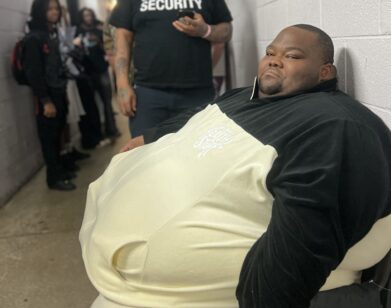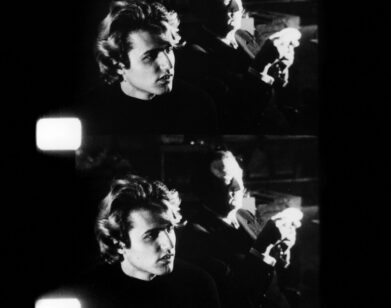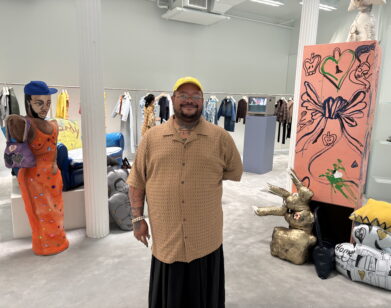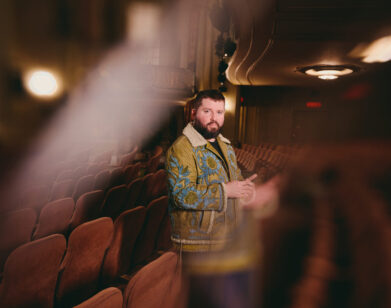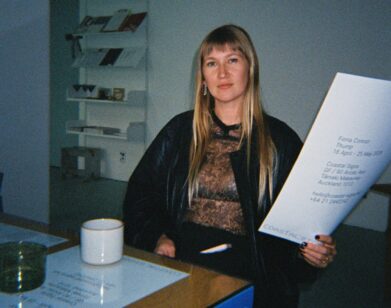The Shelf Life of Lauren Leto
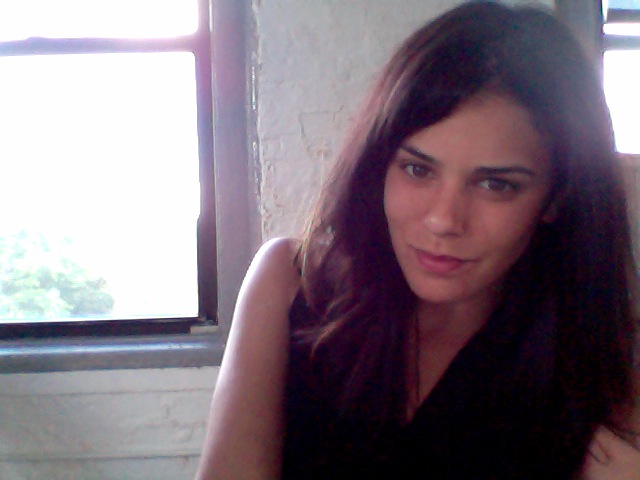
ABOVE: LAUREN LETO
Lauren Leto’s How To Judge A Book By Its Lover (Harper Perennial) takes sharp, satirical stabs at the world of literary snobbery. No author or reader is safe from Leto’s wicked wit, yet what comes across even more in this field guide to and for scribes is Leto’s deep love for words. As a child, Leto read so much that her parents began to worry that she would not be able to function in the real world. And certainly, the funny and smart personal anecdotes in her book illuminate some of her strong feelings about authors. From tips on how to fake literary knowledge to types of writerly snobs, Leto’s own words are pitch-perfect parodies of the people who prostrate themselves on the altars of Didion, Salinger, Wallace, Woolf. And those who don’t—non-readers—get digs, too. Ultimately a love letter to literature, Leto reads warm and wise. We spoke with her about choosing to be alone, trashy reading, reviewers, book smell, and why bookshelves will always be around.
ROYAL YOUNG: Reading too much can be perceived so negatively. Why is that?
LAUREN LETO: For a person who doesn’t really read too much, it’s an unknown. I wrote about my mother a lot in this book, and I think one of her problems with me reading too much was that I wasn’t socializing. She worried I was spending too much time in a dream world. There’s this Jonathan Franzen essay I believe was originally published in Harper’s Bazaar, and the title was later changed to “Why Bother?” and he makes this point that readers are people who choose to be alone.
YOUNG: Especially when you’re a kid—
LETO: Yeah, people want you to have friends and go outside.
YOUNG: [laughs] Yeah, I think the go-to excuse for parents is you’re going to fuck up your eyes! When I was little, I shared a room with my little brother, and I would read late into the night by colored light bulbs. My parents actually took me to a doctor, but he said my eyesight was fine. Which killed them.
LETO: [laughs] Yeah. I would love to do a book about other people growing up as readers, especially a story like that. Just really funny and being misunderstood.
YOUNG: Do you feel like when you were kid, reading that much actually did negatively affect how you were with people in the real world?
LETO: Yeah. Last night, I stayed in on a Friday night reading a book. Sometimes I can go in for too long and then I have to bring my head up for air. I can definitely hide in books.
YOUNG: There are two types of reading. Well, not just two. But in your book, you talk about hard, deep, profound reading and then reading just for distraction and fun. I think they’re both equally important, but a lot of literary people would just vomit if we said that to them.
LETO: It’s different for different authors, the levels of difficulty in reading them. But going back to what you were saying where reading is this kind of escape, you can only stick to scholarly studies for so long. If you really need to get away from the world outside of you, you need to lose yourself.
YOUNG: I also feel like reading is such an awesome thing, why should we be elitist about it?
LETO: Exactly! If you’re sitting there judging everything. I feel like my book does this thing where it does judge everyone, but then it criticizes that in itself. And there was just this Emma Straub blog, where the guy was saying she was too nice. And then someone else wrote an essay about how more book reviews should be bad. I think that argument is so interesting. Who is the person reviewing? What are their qualifications? Can the person reviewing it relate to it? What if a person reviewing my book were a college professor who never read anything but thesis projects and Nietzsche? I didn’t write my book for that man, I wrote that book for kids like you and I.
YOUNG: I’m sort of the mind that not enough people read anyway, so what’s the point in writing a bad review that will just turn people off from books even further? But also that books like Harry Potter and Twilight and Fifty Shades of Black…
LETO: [laughs] Grey.
YOUNG: [laughs] If it weren’t for those books, publishing wouldn’t be able to take chances.
LETO: Yeah, I think about that a lot too. People are being seen holding books in public again.
YOUNG: I see chicks reading Fifty Shades on the subway.
LETO: [laughs] That creeps me out. I’m like, are you having a moment right in front of me?
YOUNG: [laughs] And they look around surreptitiously, checking? But I feel like we both agree, sometimes trashy reading is awesome.
LETO: Oh yeah. One of my friends is really into YA and she’s been getting me more and more into it. Like YA, sci-fi stuff. I finish them in three hours.
YOUNG: That’s the point. If we ate filet mignon for dinner every night, it would suck.
LETO: Exactly. Then filet mignon wouldn’t taste as good.
YOUNG: This might be a creepy question: I want to talk to you about how books smell.
LETO: I love that smell.
YOUNG: It’s so good.
LETO: Yeah, but then they had that perfume that was supposed to be how books smell.
YOUNG: Did you smell it?
LETO: No, I thought it was kind of weird. I don’t know if I’d wear it, because I wouldn’t want to fuck someone who smelled like books. I love books, I love the smell, but it would never get someone laid.
YOUNG: What do bookshelves tell us about the owners?
LETO: I think the reader who really does love reading has a ton of very different types of books all over their shelves. But in my book, I kind of hyperbolize it. Though everyone needs a bookshelf of some type or another.
YOUNG: Yeah, that’s the type intrigues me the most. It seems like such a status stamp.
LETO: Yeah, that’s what I really tried to get it. That everyone feels like they need that shelf.
YOUNG: But why if they don’t even read?
LETO: I don’t know. Maybe it’s an interior design thing. But it’s not like people show off their CD towers anymore.
YOUNG: I loved CD towers.
LETO: They were so cool. No one has them anymore. But bookshelves will always stick around.
HOW TO JUDGE A BOOK BY ITS LOVER IS OUT NOW.

